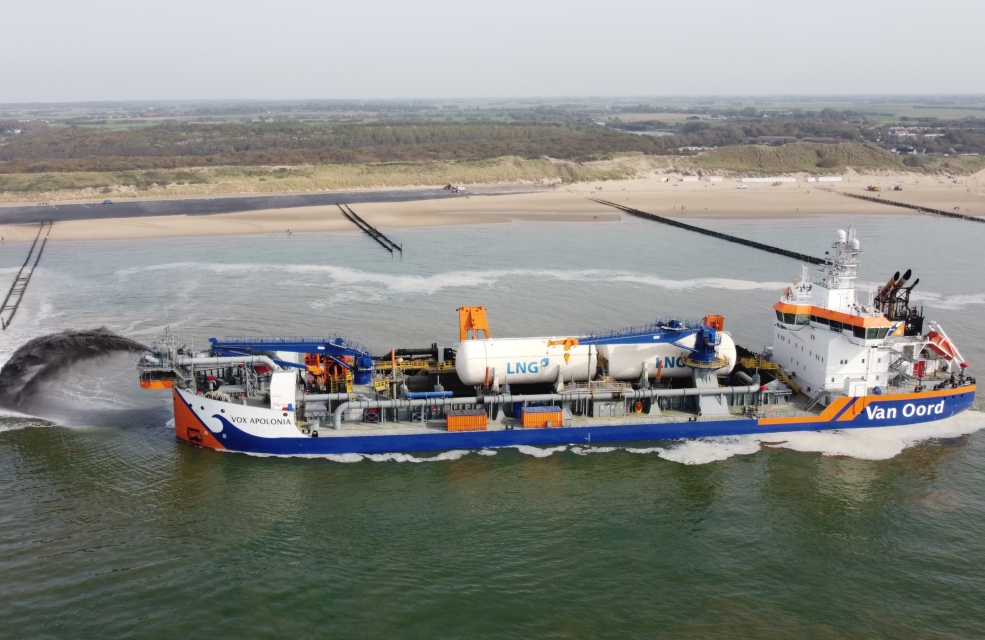Van Oord has carried out beach nourishment works along the coast of the Dutch province of Zeeland. The work was carried out by Van Oord’s three new hopper dredgers, including the Vox Alexia, which was christened in September.
During the project execution, the vessels were powered by LNG, a more sustainable fuel. The project is part of the Coastline Care programme of Rijkswaterstaat, the executive agency of the Dutch Ministry of Infrastructure and Water Management. The coastline has now been stabilised and coastal towns and infrastructure are well protected for the coming years.
Also read: VIDEO: Van Oord christens two new fleet additions in one day
4 million cubic metres of sand
To reinforce and protect the coast of Zeeland, Van Oord carried out sand replenishment at the Westkapelse Zeedijk and Nieuwvliet-Groede. The hopper dredgers were used to collect sand from the seabed and pump it through a pipeline to the beach. On the beach, weather and wind will ensure further spreading and will enable the dunes to grow.
In this way, the coast is being reinforced with the help of nature’s own forces. At the Oostgat shipping channel, the channel wall was replenished, i.e. the channel just offshore was partly backfilled with sand. Because the channel is now not as close to the shore, less sand disappears from the beach and the coastline stays in place longer.
In total, approximately 4 million cubic metres of sand were applied. This is important not just for the safety of the coast but also for preserving nature conservation areas, opportunities for recreation, and drinking water extraction.
Also read: Princess Alexia to christen namesake in Van Oord’s fleet
Van Oord-triplets working together on LNG
What makes the project special is that Van Oord used its three new LNG suction dredgers – Vox Ariane, Vox Apolonia, and Vox Alexia – to carry out the beach nourishment works. For the Vox Alexia, which was christened recently, this project was a first.
During operations, the vessels were powered by LNG. This is a more sustainable fuel alternative to marine gas oil (MGO) because it is free of sulphur and particulates. The combustion process is also different to that of MGO, resulting in much lower nitrogen dioxide emissions. It was partly because of this that Rijkswaterstaat awarded the project to Van Oord. This is in line with Rijkswaterstaat’s goal of net zero CO2 emissions and fully circular operations by 2030.
Also read: VIDEO: Van Oord’s new water injection dredger Rhône hits the water








